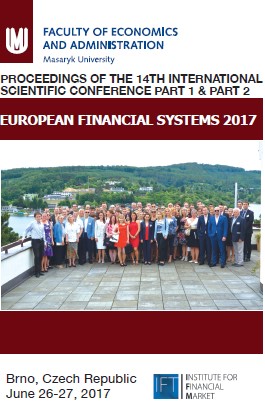Efficiency of humanitarian nonprofit organizations – a case of the Red Cross in the Europe and Central Asia
Efficiency of humanitarian nonprofit organizations – a case of the Red Cross in the Europe and Central Asia
Author(s): Jindřich Špička, Klára KOBLÍŽKOVÁ
Subject(s): Human Rights and Humanitarian Law, Economic policy, Comparative politics
Published by: Masarykova univerzita nakladatelství
Keywords: humanitarian network; super-efficiency score; Europe; Central Asia; expenditures;
Summary/Abstract: The efficiency of nonprofit organizations has been a key issue since the donors are interested in efficient and effective utilization of donations. The aim of the article is to compare the efficiency of the Red Cross and Red Crescent national societies (RCNSs) as the world’s largest nonprofit humanitarian network. Moreover, the relationship between financial efficiency and super-efficiency score based was investigated. Super-efficiency score is defined as the number of clients to the number of paid staff and volunteers. The Data Envelopment Analysis (DEA) in its super-efficiency modification was used as an indicator of efficiency of the RCNSs from 49 European and Central Asian countries in the average of 2013 - 2015. Nonparametric DEA method has been more frequently used than parametric methods in the nonprofit sector so far. Super-efficiency modification emerged as a good method for efficiency evaluation of humanitarian nonprofit organizations. The results show significant variance in the efficiency scores between countries. Our findings suggest distinct clusters of Red Cross national societies as they were identified by combination of financial efficiency and super-efficiency scores. Authors revealed negative relationship between financial efficiency and technical super-efficiency in all clusters.
- Page Range: 312-319
- Page Count: 8
- Publication Year: 2017
- Language: English
- Content File-PDF

